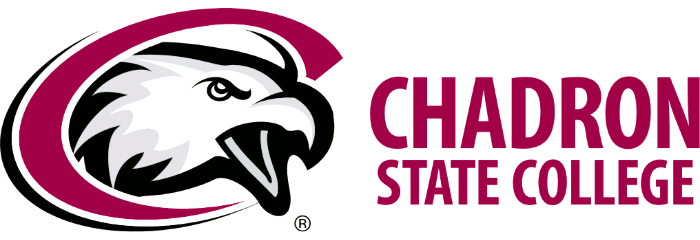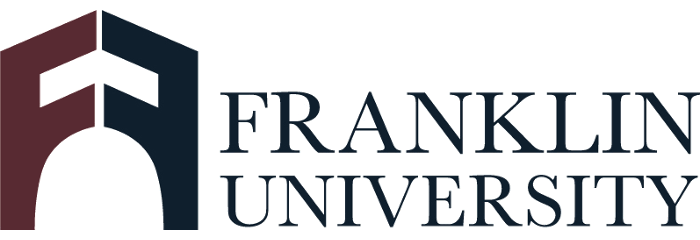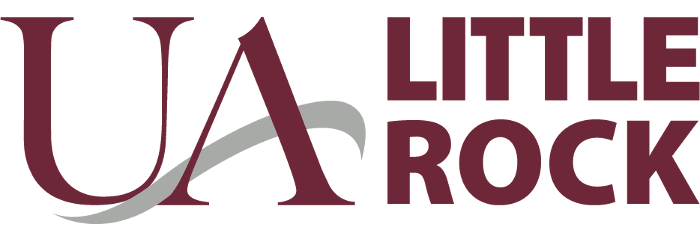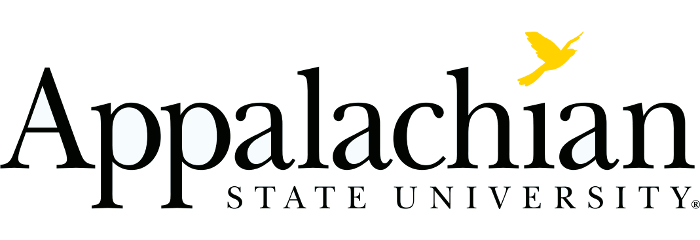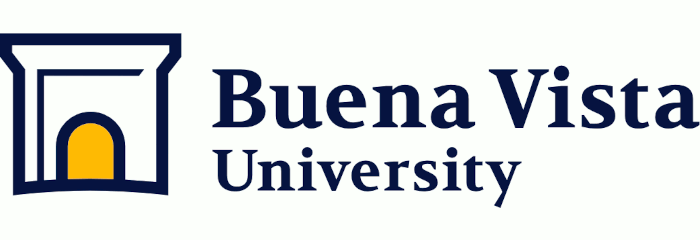2025 Best Online Secondary Education Degrees
An online secondary education degree prepares you to teach middle and high school students. This bachelor's program covers curriculum design, classroom management, and adolescent psychology, often leading to initial teacher certification.
Key Takeaways:
- Chaminade University of Honolulu excels with a median graduate earning of $50,979 for its online Bachelor of Science in Secondary Education.
- Western Governors University boasts an impressive online enrollment figure of 112,807 undergraduates studying remotely.
Our rankings list of the best online secondary education degrees prioritizes schools with high Salary Scores and significant online enrollment, aiming to guide prospective students to make the most informed decisions. For more details, please visit the methodology page.
2025 Best Online Secondary Education Degrees
#1
- Salary Score: A+
- Median Earnings: $50,979
- Online Enrollment: 764 enrolled
- Annual Tuition: $28,544
Online degree: Bachelor of Science in Secondary Education (6-12)
Why we like them: Chaminade ranks first for Salary Score on our list, with graduates of this program earning a median salary of $50,979, placing it in the top 6% nationwide. The online bachelor's in secondary education prepares students for licensure in Hawaii and possibly other states, focusing on grades 6-12 in core subjects like English, math, science, and social studies. The program aligns with Hawaii Teacher Standards Board guidelines and is accredited by WASC and AAQEP, offering flexibility for balancing coursework with teaching opportunities.
Key Metrics:
- Salary Score: A+
- Median Earnings: $50,979
- Financial Aid Recipients: 100%
- Avg. Aid Package: $14,216
- Avg. Graduation Rate: 66%
- Retention Rate: 71%
- Recommend Rate: 100%
- School Type: Nonprofit (Private)
#2
- Salary Score: A
- Median Earnings: $48,175
- Online Enrollment: 1,194 enrolled
- Annual Tuition: $14,287
Online degree: Bachelor of Arts/Science in Secondary Education (7-12)
Why we like them: WNMU ranks highly with median earnings of $48,175, placing it in the top 14% for earning potential. Its bachelor's in secondary education (7-12) prepares students for licensure through a flexible mix of online, hybrid, and on-campus courses. The program emphasizes teaching diverse populations, blending subject competence with practical skills. Clinical field experiences and Praxis Core assessments ensure readiness for student teaching and licensure, while the curriculum integrates technology for modern classroom environments.
Key Metrics:
- Salary Score: A
- Median Earnings: $48,175
- Financial Aid Recipients: 94%
- Avg. Aid Package: $8,967
- Avg. Graduation Rate: 33%
- Retention Rate: 62%
- Recommend Rate: N/A
- School Type: Nonprofit (Public)
#3
- Salary Score: A-
- Median Earnings: $46,161
- Online Enrollment: 1,098 enrolled
- Annual Tuition: $7,834
Online degree: Bachelor of Science in Education - Secondary (PK-12/6-12/7-12)
Why we like them: Chadron State ranks in the top 24% for graduate earnings, with a median salary of $46,161, highlighting the strong return on investment from its secondary education programs. Its Bachelor of Science in Education - Secondary offers coursework that includes a subject endorsement, with a required minimum GPA for progression. The program includes 19-21 credits in professional education and a professional year with specialized methods courses and a student teaching internship. Graduates are prepared for the Praxis II Content Knowledge test, essential for Nebraska endorsements.
Key Metrics:
- Salary Score: A-
- Median Earnings: $46,161
- Financial Aid Recipients: 98%
- Avg. Aid Package: $8,480
- Avg. Graduation Rate: 44%
- Retention Rate: 72%
- Recommend Rate: 100%
- School Type: Nonprofit (Public)
#4
- Salary Score: N/A
- Median Earnings: $38,529
- Online Enrollment: 112,807 enrolled
- Annual Tuition: $8,010
Online degree: Bachelor of Science in Science Education - Secondary Earth Science
Why we like them: WGU ranks among the top online schools with 112,807 students and offers a flexible, CAEP-accredited B.S. in secondary earth science education. The program covers key science topics like astronomy, geology, meteorology, and oceanography, preparing students for licensure. With 37 courses typically completed in 33 months, the competency-based format allows students to progress at their own pace. Lab kits support hands-on learning at home, ensuring graduates are equipped to pursue teaching licensure nationwide, making it an excellent choice for aspiring earth science educators.
Key Metrics:
- Salary Score: N/A
- Median Earnings: $38,529
- Financial Aid Recipients: 61%
- Avg. Aid Package: $4,798
- Avg. Graduation Rate: 49%
- Retention Rate: 65%
- Recommend Rate: 70%
- School Type: Nonprofit (Private)
#5
- Salary Score: N/A
- Median Earnings: $31,860
- Online Enrollment: 35,243 enrolled
- Annual Tuition: $11,700
Online degree: Bachelor of Education in Middle Education - Social Sciences (Licensure)
Why we like them: Liberty stands out with 35,243 online students, placing it in the top 1% for virtual enrollment. Its BEd in Middle Education with a Social Sciences emphasis is a 122-credit hour program designed for Virginia teacher licensure, delivered in flexible 8-week formats. CAEP-accredited, the program allows up to 75% transfer credits and includes 90 practicum hours and a semester of student teaching. Students explore topics like American history and economics, preparing them to create engaging, inclusive learning environments for middle school students.
Key Metrics:
- Salary Score: N/A
- Median Earnings: $31,860
- Financial Aid Recipients: 98%
- Avg. Aid Package: $12,471
- Avg. Graduation Rate: 62%
- Retention Rate: 79%
- Recommend Rate: 57%
- School Type: Nonprofit (Private)
#6
- Salary Score: N/A
- Median Earnings: N/A
- Online Enrollment: 5,224 enrolled
- Annual Tuition: $9,577
Online degree: Bachelor of Science in Adolescence to Young Adult Education (7-12)
Why we like them: With 5,224 individuals pursuing Franklin's virtual programs, the university ranks among the top 7% nationwide in online popularity. Franklin offers a Bachelor of Science in Adolescence to Young Adult Education designed to prepare you for teaching grades 7-12 in Ohio. It features a 100% online curriculum with courses available in 6, 8, 12, and 16-week formats. The program emphasizes practical application, requiring 120 credit hours, and allows for up to 75% transfer credits. Accredited by the CAEP, it includes field placements from the first term and covers assessments for Ohio's educator licensure.
Key Metrics:
- Salary Score: N/A
- Median Earnings: N/A
- Financial Aid Recipients: 31%
- Avg. Aid Package: $7,398
- Avg. Graduation Rate: 42%
- Retention Rate: 50%
- Recommend Rate: 68%
- School Type: Nonprofit (Private)
#7
- Salary Score: N/A
- Median Earnings: $38,208
- Online Enrollment: 2,142 enrolled
- Annual Tuition: $18,957
Online degree: Bachelor of Science in Education in Middle Childhood Education (4-8)
Why we like them: UALR’s 120-credit hour Bachelor of Science in Education in middle childhood education prepares you to teach grades 4-8, with Arkansas licensure in math, science, language arts, or social studies. The program emphasizes understanding young adolescents and integrates content with teaching strategies. Admission requires a GPA of 2.70, specific coursework, and passing Praxis Core tests. CAEP and HLC-accredited, it includes an unpaid internship and electronic portfolio development, ensuring strong preparation for middle-level education roles.
Key Metrics:
- Salary Score: N/A
- Median Earnings: $38,208
- Financial Aid Recipients: 99%
- Avg. Aid Package: $10,494
- Avg. Graduation Rate: 42%
- Retention Rate: 75%
- Recommend Rate: 83%
- School Type: Nonprofit (Public)
#8
- Salary Score: N/A
- Median Earnings: $41,584
- Online Enrollment: 2,022 enrolled
- Annual Tuition: $21,858
Online degree: Bachelor of Arts in Middle Grades Education
Why we like them: UNCW’s Middle Grades Education BA offers an online option that leads to certification for grades 6-9. The program, designed by the Watson College of Education, includes over 500 hours of hands-on classroom experience, culminating in a full-semester internship. Specializations in language arts, math, science, and social studies are available, with personalized advising and instruction from experienced educators. This degree prepares students for North Carolina middle-level teaching licensure through extensive practical fieldwork.
Key Metrics:
- Salary Score: N/A
- Median Earnings: $41,584
- Financial Aid Recipients: 74%
- Avg. Aid Package: $6,217
- Avg. Graduation Rate: 74%
- Retention Rate: 83%
- Recommend Rate: 88%
- School Type: Nonprofit (Public)
#9
- Salary Score: N/A
- Median Earnings: $31,597
- Online Enrollment: 1,332 enrolled
- Annual Tuition: $17,050
Online degree: Bachelor of Science in Education - Secondary Education (9-12)
Why we like them: CMU's Bachelor of Science in Education – Secondary Education prepares you for Missouri teaching certification for grades 9-12. Available online or at various locations, the program offers certification in subjects like biology, business, and chemistry. Accredited by the Higher Learning Commission and the Missouri Department of Elementary and Secondary Education, the curriculum includes hands-on projects and internships. Its flexible format supports online learners seeking to specialize in secondary education, providing practical skills for diverse teaching roles.
Key Metrics:
- Salary Score: N/A
- Median Earnings: $31,597
- Financial Aid Recipients: 100%
- Avg. Aid Package: $18,044
- Avg. Graduation Rate: 51%
- Retention Rate: 42%
- Recommend Rate: 86%
- School Type: Nonprofit (Private)
#10
- Salary Score: N/A
- Median Earnings: $40,167
- Online Enrollment: 1,190 enrolled
- Annual Tuition: $9,150
Online degree: Bachelor of Science in Math Studies - Middle Level
Why we like them: UNH's online Bachelor of Science in Math Studies with a focus on middle-level education prepares students for New Hampshire teacher certification in middle school mathematics. The 120-credit program allows up to 90 transfer credits and features field-based experiences mentored by seasoned educators. Covering topics like statistics, pre-calculus, and the history of mathematics, the curriculum aligns with state certification standards, offering a flexible path for those seeking career advancement in middle-level math education.
Key Metrics:
- Salary Score: N/A
- Median Earnings: $40,167
- Financial Aid Recipients: 92%
- Avg. Aid Package: $5,318
- Avg. Graduation Rate: 15%
- Retention Rate: 40%
- Recommend Rate: 56%
- School Type: Nonprofit (Public)
#11
- Salary Score: N/A
- Median Earnings: $40,033
- Online Enrollment: 776 enrolled
- Annual Tuition: $23,454
Online degree: Bachelor of Science in Middle Grades Education
Why we like them: Appalachian State boasts an impressive 83% retention rate, placing it in the top 17% of U.S. schools, with a graduation rate in the top 10%, highlighting its focus on student success. These are the best rates on our entire list. Its online Bachelor of Science in Middle Grades Education offers 120 credit hours of liberal arts, discipline-specific, and pedagogical studies, preparing students for North Carolina state licensure for grades 6-8. The program includes multiple student teaching experiences in North Carolina public schools, concluding with a full-time internship in the final semester.
Key Metrics:
- Salary Score: N/A
- Median Earnings: $40,033
- Financial Aid Recipients: 70%
- Avg. Aid Package: $7,443
- Avg. Graduation Rate: 75%
- Retention Rate: 83%
- Recommend Rate: 87%
- School Type: Nonprofit (Public)
#12
- Salary Score: N/A
- Median Earnings: N/A
- Online Enrollment: 600 enrolled
- Annual Tuition: $32,685
Online degree: Bachelor of Science in Middle Grades Education
Why we like them: Brenau’s Bachelor of Science in Middle Grades Education offers courses over eight semesters, with flexible start times in fall, spring, or summer. The program focuses on developmentally appropriate teaching strategies for diverse adolescent learners, with students selecting two concentrations, such as mathematics or science. Practical experiences include in-person fieldwork and student teaching. Graduates are eligible for certification through the Georgia Professional Standards Commission after passing the GACE exams. We especially like the school's 89% recommendation rate.
Key Metrics:
- Salary Score: N/A
- Median Earnings: N/A
- Financial Aid Recipients: 98%
- Avg. Aid Package: $22,146
- Avg. Graduation Rate: 46%
- Retention Rate: 55%
- Recommend Rate: 89%
- School Type: Nonprofit (Private)
#13
- Salary Score: N/A
- Median Earnings: $39,878
- Online Enrollment: 571 enrolled
- Annual Tuition: $38,644
Online degree: Bachelor of Education in Secondary Education
Why we like them: BVU ranks in the top 5% for average financial aid, with packages averaging $33,703, making education more accessible. Its online secondary education program offers a flexible path to earning a bachelor of secondary education degree online, preparing you for licensure to teach grades 5-12. The program combines live Zoom instruction with online coursework and integrates advanced technology like SMART boards and 3-D printers. Personalized advisement across Iowa ensures tailored support, with specializations available in English language arts and all sciences, meeting Iowa’s licensure requirements.
Key Metrics:
- Salary Score: N/A
- Median Earnings: $39,878
- Financial Aid Recipients: 100%
- Avg. Aid Package: $33,703
- Avg. Graduation Rate: 58%
- Retention Rate: 76%
- Recommend Rate: 89%
- School Type: Nonprofit (Private)
#14
- Salary Score: N/A
- Median Earnings: N/A
- Online Enrollment: 313 enrolled
- Annual Tuition: $25,050
Online degree: Bachelor of Arts in Secondary English Education (8-12)
Why we like them: Midway's secondary education program offers three areas of emphasis: biology (on-campus only), English, and mathematics (available online and on-campus). The 120-credit hour program includes a strong core curriculum in critical thinking, literacy, and sciences, preparing students for Kentucky certification. Those seeking certification in other states should confirm additional requirements. The program equips you to teach high school students in your chosen field, with an optional 21-credit hour Learning Behavior Disorders add-on to further enhance your expertise.
Key Metrics:
- Salary Score: N/A
- Median Earnings: N/A
- Financial Aid Recipients: 100%
- Avg. Aid Package: $17,934
- Avg. Graduation Rate: 50%
- Retention Rate: 74%
- Recommend Rate: 100%
- School Type: Nonprofit (Private)
#15
- Salary Score: N/A
- Median Earnings: N/A
- Online Enrollment: 155 enrolled
- Annual Tuition: $31,650
Online degree: Bachelor of Science in Secondary Education
Why we like them: ACU’s Bachelor of Science in Secondary Education offers a biblically grounded online program with 30 core credits in Biblical and Theological Studies. Tailored for non-certified roles, it includes concentrations in Business, Mathematics, English Language Arts, or History. The curriculum covers adolescent psychology, educational strategies, and special education methods. With a focus on practical experience and mentoring, the program prepares you for roles like curriculum development or work in diverse educational settings.
Key Metrics:
- Salary Score: N/A
- Median Earnings: N/A
- Financial Aid Recipients: 100%
- Avg. Aid Package: $19,174
- Avg. Graduation Rate: 46%
- Retention Rate: 60%
- Recommend Rate: 100%
- School Type: Nonprofit (Private)
2025 Best Online Secondary Education Degrees
| Rank | School | Salary Score | Median Earnings | Online Enrollment |
|---|---|---|---|---|
| Chaminade University of Honolulu | $50,979 | 764 | ||
| Western New Mexico University | A | $48,175 | 1,194 | |
| Chadron State College | A- | $46,161 | 1,098 | |
| Western Governors University | N/A | $38,529 | 112,807 | |
| Liberty University | N/A | $31,860 | 35,243 | |
| Franklin University | N/A | N/A | 5,224 | |
| University of Arkansas at Little Rock | N/A | $38,208 | 2,142 | |
| University of North Carolina at Wilmington | B- | $41,584 | 2,022 | |
| Central Methodist University | N/A | $31,597 | 1,332 | |
| University of New Hampshire College of Professional Studies | N/A | $40,167 | 1,190 |
Student Reviews of Online Secondary Education Programs
I love WGU! I started my degree program 2 months ago, needing to earn 127 credit hours and have already completed 85 credit hours. You work at your own pace people. I will receive a bachelors degree in less than a year when it takes 5 years at a traditional school. If you are smart, you know how to write a paper, you know how to solve algebraic equations, or at least are smart enough to teach yourself what you don’t already know: WGU is for you. If you are motivated and can type an essay in a couple... Read More
Review Date: 4/12/2022
Would Recommend: Yes
I would like to say that my experience so far has been great. This is my second year and as promised the professors have been knowledgeable, the courses are also what I expected. The only thing that I did not like was my past counselor, she didn't help me the way she should of, other than that my ride has been wonderful. I highly recommend this university to anyone. Some people may complain per their experience and it is understandable, but the university has a good reputation. Do your research before... Read More
Review Date: 6/19/2016
Would Recommend: Yes
I completed this degree as a pathway program partnered with Rio Salado College in Phoenix. Both of these schools were online, and I initially entered the program because I worked full time and have a family. The schedule worked best for me. Northcentral was flexible in their scheduling, in being able to pay for my classes, and in how many classes I could take at a time. They definitely worked with my crazy, busy life. At first, I struggled with communication with their staff. There was a lot I needed... Read More
Review Date: 6/14/2019
Would Recommend: Yes
What I loved most about this university, especially being an online student, is how dedicated those at GCU were to making sure I succeeded. Of course, it was up to me to pass the courses. My advisor, counselor, and professors made sure I was on the track and was challenged. With a lot of hard work, I was able to obtain a 4.0 GPA. Being an online out-of-state student, I had to make sure I was meeting my state's requirements for certification. While GCU provided an excellent education, I simply needed... Read More
Review Date: 7/13/2018
Would Recommend: Yes
Ok..... so I keep seeing all of these negative reviews and its driving me crazy. I have attended GCU since 2011 and there have been some ups and downs, but that is with any school in the country. I have started my last class before student teaching, and being on the down hill part of my degree, it is not a walk in the park. You have to sacrifice alot, your personal time, family, and alot of sleep but its worth it. I may have to retake a class to get my GPA up, but that is my fault not the schools,... Read More
Review Date: 6/29/2015
Would Recommend: Yes
I received a scholarship, NCU took more credits from community colleges than the more expensive in-state universities would, and I got my job as a teacher immediately afterward. The professors were excellent. I am very surprised at the negative reviews, but it might be different for the Master's and Doctorate programs. All I know is I graduated with next to no debt and paid it off right away and got into my field.
Review Date: 1/2/2019
Would Recommend: Yes
I researched a number of online schools before starting at Grand Canyon University. I needed to attend school online because I knew I would be moving before I finished my degree and I did not want to have to start over with transferring credit again. I was concerned during my first few classes because of the poor communication skills displayed by some of my fellow students and because of the profession I had for my Christian Woldview Class but, as I progressed to more degree specific classes, I found... Read More
Review Date: 7/8/2014
Would Recommend: Yes
WGU allows its students to work at their own pace. This is exceptional for the student that desires to accelerate and for the student that needs to take it slow. WGU also allows the student to use their life experience to gain competency in strong areas. I taught for 12 years at a christian school and decided to get my BA is Mathematics. I was able to "test out" of several classes and will be graduating with my BA in Mathematics and my teaching certificate in secondary math in under two years!! The... Read More
Review Date: 8/7/2014
Would Recommend: Yes
I loved it! The professors there were helpful, professional, and well-educated. I did my schooling online, but loved how I still had due dates and deadlines to meet. I definitely recommend at least checking out the campus and the degrees that they offer.
Review Date: 10/28/2015
Would Recommend: Yes
Great school, highly recommended! I got a job teaching 1 month after graduating. The courses are tough, and require a lot of time and effort. But it is totally worthwhile. The mentors are there to not only guide you through the program, but act as cheerleaders as well, encouraging you to do your best. I am back at WGU to obtain a Master's degree. Great school for working adults!
Review Date: 4/23/2015
Would Recommend: Yes
I transferred my credits via a University Partnership that allowed me to transfer 90 credits to Northcentral University instead of the usual 60. Rio Salado is a good way to go. If I had to do my schooling all over again, I would still stick with this school and its partnership with Northcentral. Toward the end of my time as I got to the end of my schooling, though, the advisement department started getting not so good. Trying to register for the right classes became a nightmare - I had to argue with... Read More
Review Date: 1/2/2019
Would Recommend: Yes
I just got word today that I landed a job with the 2nd school I interviewed with! I worked hard at WGU and had to put in a good deal of time finding my own resources to completing the assignments, but this helped me figure out how I learn. Learning how you learn one of the most important things to being successful at WGU. WGU is NOT a typical college and if you are expecting all the information to be in a single book or in some lecture, you will have a tough go of it until you develop some resources.... Read More
Review Date: 6/20/2013
Would Recommend: Yes
PROS: Flexible schedule, inexpensive tuition (books, etc. included in tuition), nationally and regionally accredited, required scheduled contact with school personnel and faculty, competency-based grading system that reflects academic difficulty of programs offered
CONS: Not as academically supportive as bricks-and-mortar school (ie. you are expected to take charge of your own learning, and if you need extra help, you have to schedule an appt.), skepticism from potential employers (not personally... Read More
Review Date: 2/5/2013
Would Recommend: Yes
I started my college career at a traditional 4 year university. My experience there was the typical college experience and I'm glad I have those memories. However, I married a military man and had to move before I graduated. That's what led me to WGU. I completed my undergraduate in elementary education and had a wonderful semester of student teaching. I am now a teacher in a large and competitive school district. Additionally, I am two classes away from receiving my master degree in education from,... Read More
Review Date: 6/28/2013
Would Recommend: Yes
GCU was the first offer degree's other than IT, Business or Public management. Their course offerings are broad. This is what attracted me to them as I am a mid-forties non-traditional student with credit hours spread from Egypt to Tennessee. Their evaluation process is next to none I have experienced and the courses are good if you understand that online course work is self-motivational. The negatives are price and structure. Where they are extremely accommodating they are plagued by their format,... Read More
Review Date: 11/22/2014
Would Recommend: Yes
I have zero regrets for choosing to attend Clayton State University. The professors are great and care about their students. I felt as prepared as one could be going into the field of education. This is year 4 for me being a teacher and most of my early success in this profession is due to the fact I went to Clayton State. This is not a easy profession and the professors at Clayton State are not out of touch with reality and acknowledge the fact that students choosing this profession should not go... Read More
Review Date: 12/9/2018
Would Recommend: Yes
IUP offered a lot of hands on experience and got us in the classroom early and often. The professors helped make sure both our content and teaching methods were well developed. The school counselors helped me graduate on time in four years in a very intensive and credit heavy major.
Review Date: 3/27/2017
Would Recommend: Yes
I am a GCU student and this school has changed my life for the good. GCU has great teachers, caring academic teams, and I will be getting my masters from this great school, also. I feel like I have my own personal cheerleading team helping and encouraging me along my journey.
Any student has to take responsibility for their own academics and work hard to achieve those goals. if the student is not ready to work then don't enroll. i look forward to hanging my GCU diploma in my classroom. Go 'Lopes.... Read More
Review Date: 2/11/2013
Would Recommend: Yes
UCF is a great school as far as the academics go and there is a great atmosphere. Unfortunately the financial aid department is completely incompetent . when dealing with students. i have been instructed by them to take out loans because i wouldn't be receiving sufficient funds to cover my tuition and a week later after taking out loans i received other aid. By them it is too late to cancel the loan. I have also been cheated out of aid because the FA office processed my information late despite the... Read More
Review Date: 8/5/2014
Would Recommend: Yes
I am a graduate of Arizona State University, where I earned a degree in English, a degree in Secondary Education, and a certificate in Philosophy, Literature, and Rhetoric. The education I received as an adult student who returned to school prepared me to pursue a career as a high school teacher. There was a diverse selection of courses both in person and online, allowing me to continue to work full time as well as pursue my degrees as a full time student. The faculty was knowledgeable and helpful... Read More
Review Date: 6/24/2017
Would Recommend: Yes
Why Trust Us?
27 Data
Researchers
60,000 Degrees Researched Annually
20,000 Hours Spent on Research Annually
Launching Rankings Since 2009







